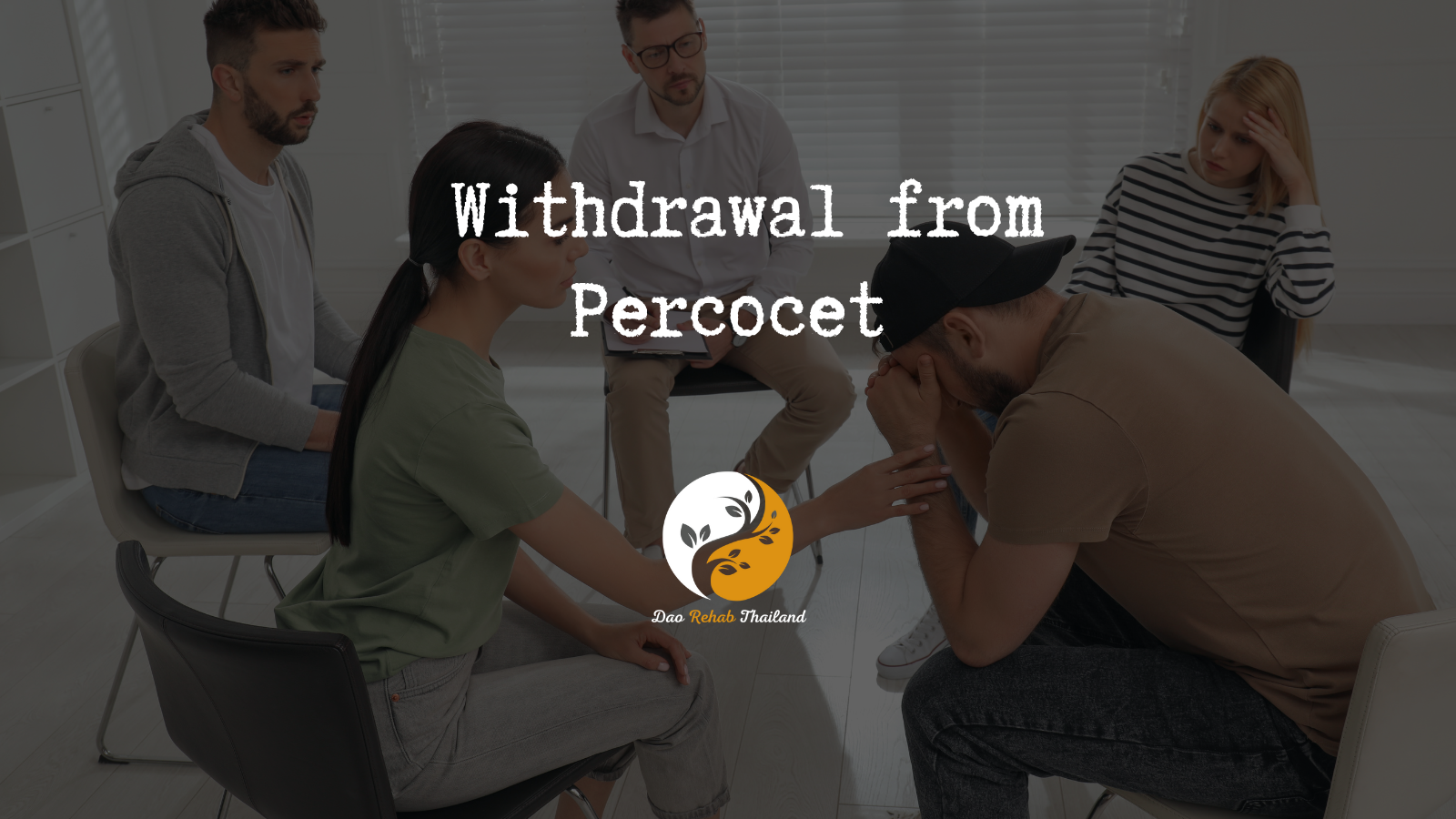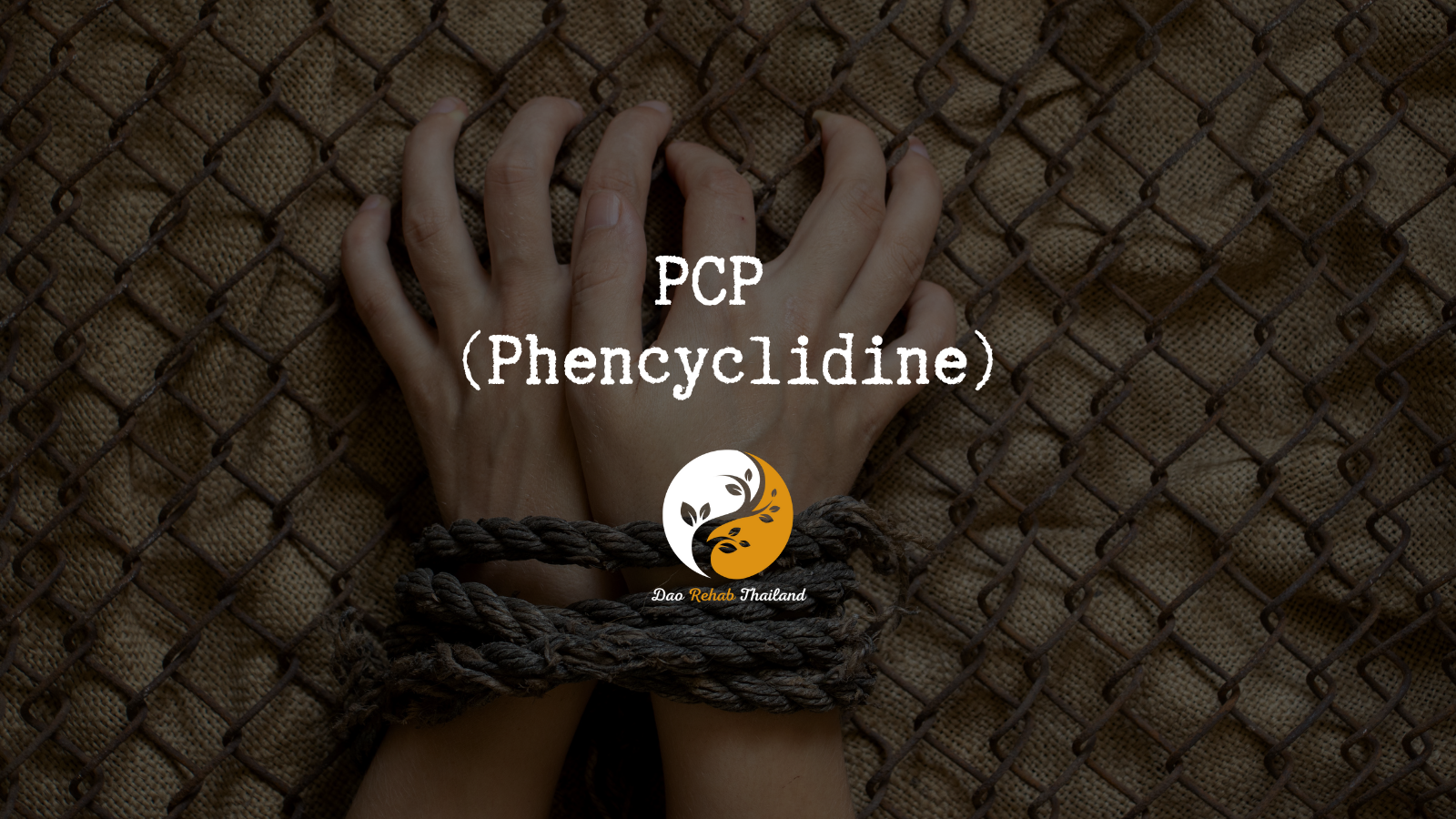
Withdrawal from Percocet – Holistic rehab in Thailand
Withdrawal from Percocet
“Turning the impossible into possible”

"Detox from Drugs at a Luxury Holistic Center in Thailand and Israel"

Withdrawal from Percocet
Percocet addiction is a serious and widespread medical problem, particularly because of its oxycodone component, a powerful opiate. This addiction develops when use of the drug leads to physical and psychological dependence.
Addiction to opioid painkillers, such as Percocet, is a serious problem, and fatal overdoses have been on the rise in recent years. In 2021, for example, there were an estimated 106,699 overdose deaths in the United States, many of which were related to synthetic opioids such as fentanyl. Of these deaths, more than 16,000 were caused by prescription painkillers, which are known to cause severe and severe harm (Addiction Group CDC).
Globally, there were an estimated 600,000 drug-related deaths in 2019, with approximately 80% of these deaths related to opioids. Of these, approximately 125,000 deaths were due to opioid overdoses (World Health Organization (WHO)).
The increase in opioid overdose deaths is due in part to the increased availability of these drugs for the treatment of chronic pain and the emergence of stronger synthetic opioids on the illicit drug market. In many cases, users unknowingly consume stronger opioids such as fentanyl, leading to increased mortality (World Health Organization (WHO)).
In general, it is important to recognize that withdrawal from opioid painkillers requires medical supervision and appropriate preparation to ensure a safe and effective process.
"Holistic Center for Trauma, Addiction, and Mental Imbalance Treatment in Thailand"
“Come to the beginning of your journey to freedom from addiction to alcohol, drugs, and pills, and rediscover your life within the serene embrace of DaoTherapy Rehab in Thailand—where holistic healing meets empowering recovery.”
DaoTherapy Holistic Rehab
Key Elements of Drugs Detox:
Medical Supervision: Drugs detox must be conducted under medical supervision, as the body may experience withdrawal symptoms. These can include nausea, anxiety, muscle aches, and insomnia. A medical team will monitor and manage these symptoms to ensure the patient’s safety and comfort.
Holistic Therapies:
Holistic Therapies: Many detox programs incorporate holistic therapies such as mindfulness, yoga, and meditation to help individuals cope with stress and anxiety during the detox process. These therapies support the mind-body connection and contribute to overall recovery.
Tapering Process
Tapering Process: Drugs detox often involves a gradual tapering of the drug to reduce withdrawal severity. Doctors will slowly decrease the dosage over time to allow the body to adjust to lower levels of the substance.
Psychological Support:
Psychological Support: Like any addiction recovery process, detox from Drugs includes psychological support. This can involve counseling, therapy, or support groups to address the mental and emotional aspects of addiction.
Post-Detox Treatment:
Post-Detox Treatment: After completing detox, continuing treatment is crucial to prevent relapse. This often includes participation in ongoing therapy, group support, and the development of new coping strategies to maintain sobriety.
Signs and symptoms of Percocet addiction:
1. Overuse:
Taking more than the recommended dose.
Using the drug more frequently than necessary.
2. Mental dependence:
Feeling an uncontrollable need to consume the drug.
Feeling uneasy or anxious when the drug is not available.
3. Physical dependence:
– The appearance of withdrawal symptoms when stopping the drug, such as sweating, tremors, muscle aches, general discomfort, nausea, and vomiting.
4. Behavioral changes:
Continuous search for the drug and obtaining prescriptions from different doctors (doctor shopping).
Lying and concealing about the use of the drug.
Neglecting daily responsibilities such as work, school, or family care.
Health risks:
Physical dependence: Continuous use of Promethazine can lead to physical dependence, in which the body becomes accustomed to the presence of the drug and requires a higher dose to achieve the same effect.
Overdose: Taking too high a dose of Percocet can cause respiratory depression, low blood pressure, loss of consciousness, and even death.
Liver damage: Due to the acetaminophen in Percocet, high doses can cause serious liver damage.
Addiction is prevented by:
Controlled use: Taking the medication only as directed by your doctor and never changing the dosage without medical advice.
Regular medical monitoring: It is important to meet with your doctor regularly to reassess your treatment and monitor for side effects.
Avoid mixing medications: Do not mix the medication with other things or use medications that were not prescribed to you.
Treatment of addiction with taotherapy:
1. Medical advice:
Seeking a doctor for advice and treatment. A doctor may recommend detoxification programs and medical monitoring.
2. Psychological support:
Individual or group psychological therapy can help cope with addiction.
Support groups such as Narcotics Anonymous (NA) offer a supportive and understanding environment.
3. Medication:
Limited use of medications that can aid in detoxification, under medical supervision.
It is important to remember that addiction is a chronic disease that can be successfully treated with professional support and a willingness to change.

contact us
Contact us with your questions
We would love to speak with you! Feel free to reach out with any questions.

get in touch
Schedule a free consultation
Schedule a free consultation with our team and let’s make things happen!
Precast components:
Percocet is a prescription drug that combines two active ingredients: Oxycodone and Paracetamol (also known as Acetaminophen).
Percocet Ingredients:
1. Oxycodone: Oxycodone is a strong opiate used to relieve moderate to severe pain. It acts on the central nervous system to reduce the sensation of pain.
2. Paracetamol: Paracetamol is a widely used pain reliever and fever reducer. It works by a different mechanism than oxycodone, complementing its analgesic effect.
Medical Uses:
Treatment of severe pain, such as pain after surgery, pain caused by chronic diseases or serious injuries.
The analgesic effect of Percocet is strong and is therefore given in cases where regular pain relievers are not enough.
Warnings and Side Effects:
Dependence and Addiction: Oxycodone is an opiate that can cause dependence and addiction. It should be used under close medical supervision.
Common side effects: drowsiness, dizziness, nausea, vomiting, constipation, respiratory depression.
Paracetamol: Be careful not to consume too much paracetamol, as high doses may cause liver damage.
Safe use:
It is important to take the medication exactly as prescribed by your doctor.
Do not consume alcohol while taking the medication, as this may increase the risk of liver damage and other side effects.
Tell your doctor about any other medications you are taking to avoid dangerous drug interactions.
As with any strong medication, Percocet should be used with caution and under medical supervision to ensure effective and safe treatment.
Steps to weaning from Percocet:
Yes, it is possible to quit Percocet, but it can be a challenging process that requires professional support and a willingness to change. Withdrawal occurs in several stages and includes medical treatment, psychological support, and lifestyle changes. Here is information on how to quit Percocet with Taotherapy:
1. Medical consultation:
Medical evaluation: Get an evaluation from your doctor to determine your overall health and adjust your withdrawal plan.
Close monitoring: It is important to have close medical monitoring throughout the withdrawal process to make sure everything is going safely and effectively.
2. Tapering:
Tapering: Instead of stopping use abruptly, your doctor may recommend gradually reducing your dose to reduce withdrawal symptoms.
Personalized plan: Each patient will receive a personalized dose reduction plan based on their needs and health condition.
3. Treatment of withdrawal symptoms:
Physical symptoms: Common symptoms include muscle pain, nausea, vomiting, sweating, tremors, and sleep problems.
Medication: In some cases, doctors may prescribe medications to relieve withdrawal symptoms, such as clonidine or anti-nausea medications.
Psychological support: Psychological therapy can help deal with psychological dependence and develop tools to cope with drug cravings.
4. Social and emotional support:
Support groups: Participating in support groups such as Narcotics Anonymous (NA) can provide emotional and social support and strengthen your commitment to abstinence.
Individual therapy: Treatment with a psychologist or addiction counselor can help identify and deal with the factors that led to drug use.
5. Lifestyle changes:
Exercise: Regular exercise can help improve your mental and physical condition.
Healthy Diet: A balanced diet can support the recovery process and improve overall health.
Stress Management: Developing stress management tools, such as yoga or meditation, can help deal with stressful situations that can lead to relapse.
Treatment settings available in Israel:
Outpatient rehab clinics: offer daily care and support, but allow the patient to remain at home. Taotherapy has a “Waking Up” day center
Full-inpatient rehab centers: provide intensive treatment in a closed setting, allowing patients to fully concentrate on the detoxification process.
The importance of persistence and support:
Ongoing support: It is important to continue receiving support even after completing the detoxification process to prevent relapse.
Follow-up plan: Develop a follow-up plan that includes ongoing treatment, support groups, and maintaining contact with the treating doctor.
Rehab from Percocet is a possible and recommended process with the right support and a suitable plan. It is important not to go through the process alone and to seek professional help.
Personal preparation for withdrawal from Percocet
Preparing for Percocet withdrawal is an important and necessary step to success in the process. Here are some important steps you can take to prepare yourself for withdrawal:
Step 1: Assessing and Understanding the Situation
1. Educate Yourself: Learn about Percocet addiction, withdrawal symptoms, and what you may experience during the process. A thorough understanding will help you be more prepared.
2. Know the Symptoms: Understand what physical and emotional symptoms you may experience during withdrawal (such as nausea, pain, anxiety, depression).
3. Identify Triggers: Try to identify the triggers that led to drug use and avoid them as much as possible.
Step 2: Seek Professional Help
1. Consult Your Doctor:
Make an appointment with your doctor to discuss your desire to quit and receive a personalized withdrawal plan.
Ask your doctor to explain the tapering plan if that is the strategy you have chosen.
2. Preparing for Medication:
Check with your doctor about medications that can help ease your withdrawal symptoms.
Make sure you have access to the medications you need for the withdrawal period.
Step 3: Preparing Mentally and Emotionally
1. Psychological Support:
Seek help from an addiction counselor or psychologist who can provide support during the process.
Consider joining a support group like Narcotics Anonymous (NA) or other groups that are right for you.
2. Support from Family and Friends:
Share your plan with close people who can support you emotionally.
Ask them to provide support and be there for you during difficult times.
Step 4: Preparing the Physical Environment
1. Removing Excess Medications:
Remove any unnecessary or unwanted medications from your home that could be a temptation to relapse.
2. Preparing a Comfortable Place:
Prepare a comfortable place in your home where you can relax and recover. Make sure you have everything you need to feel comfortable (like water, healthy food, blankets, and pillows).
Step 5: Prepare for a Healthy Lifestyle
1. Balanced Diet:
Start eating a healthy, balanced diet to strengthen your body.
2. Exercise:
Incorporate regular exercise into your life to improve your physical and mental well-being.
3. Stress Management:
Learn stress management techniques like meditation, yoga, or deep breathing techniques that can help you relax and cope with stress.
Step 6: Mental Preparation
1. Goal Setting:
Set realistic and clear goals for your detox process and stay motivated to achieve them.
2. Personal Journal:
Consider keeping a journal where you can record your thoughts and feelings throughout the process. This can help you focus and deal with the feelings that arise.
Proper preparation for the detox process can significantly increase your chances of success. Remember that you are not alone in the process and you have every right and ability to seek professional help and social support.
Proper preparation for withdrawal from Percocet includes a thorough understanding of the process, seeking professional help, emotional and mental support, and preparing the physical and mental environment. Remember that you are not alone in the process and you have every right and ability to seek professional help and social support. Success in withdrawal is possible with perseverance and appropriate support.
Psychological Support:
Psychological Support: Like any addiction recovery process, detox from Subutex includes psychological support. This can involve counseling, therapy, or support groups to address the mental and emotional aspects of addiction.








